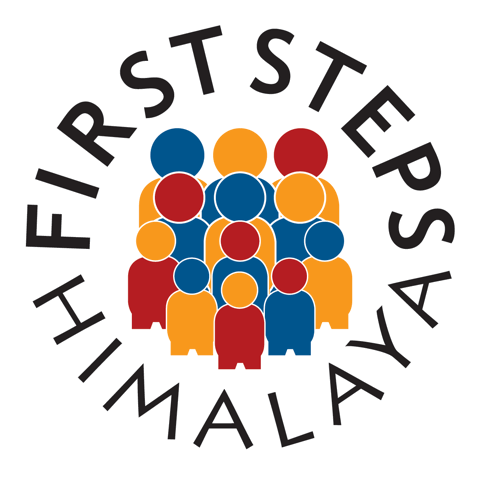Having your period is something almost all women and older girls across the globe deal with each month. There is no denying that it can be messy, uncomfortable and a sometimes painful time.
Unfortunately in Nepal, menstruation is layered with many cultural taboos and restrictions that make girls and women’s daily lives much more difficult when they are menstruating.
Helping girls feel confident
First Steps Himalaya has recently started a Menstrual Hygiene Management programme for older girls in six schools we work with across Nepal. (Panchakanya, Ajinghare and Srijana in Nuwakot and Jitpur, Kadambas and Irkhu Pokhare in Sindhupalchok).
The goal is to help these girls feel confident and ready to learn at school when they have their period.
Let’s look at some of the problems faced by the girls and how First Steps Himalaya is helping to make menstruation a regular, normal part of a girl’s daily life.
Physical difficulties in the school toilet
At school, older girls who live in rural areas of Nepal often struggle to deal with their period in a hygienic, dignified way. Until recently, school leaders had put little thought into catering for the needs of menstruating students.
There may be no disposal facilities in the toilet area. If there is a bucket to place used sanitary products it may not be regularly emptied and so is overflowing, unsightly and unhygienic. There may be no water nearby to wash hands after a girl had changed her pad.
Over a quarter of the girls that we surveyed at the six schools expressed that, when they were at school, they didn’t change their pads as often as they needed to at school. Although the majority of girls reported that they were happy with the disposal and hand washing facilities at their school, there was still a sizable group of girls who felt the toilet experience needed improvement.
How does First Steps Himalaya help?
A key part of the programme is engaging with the leadership at the schools and encouraging teachers and the school committee to improve the toilet experience for menstruating girls.
Our team regularly catches up with the school leaders and monitors progress towards clean toilets, hygienic disposal methods and good availability of water for hand washing.
Sanitary products
We asked the girls what products they used to absorb blood during their period. Almost all the girls used wads of cloth that they would wash at home. Around 20% of the girls used purchased disposable pads, which are expensive.
As part of the programme, we run workshops to teach the girls how to sew their own reusable sanitary pads out of comfortable, absorbent fabric.
Taboos and restrictions
We asked the girls about their lived experience of what happens when they have their period in their village.
A huge amount of girls reported that they or their family members faced restrictions when menstruating; 25% - 35% girls at three schools and a whopping 75% of girls at the remaining three schools reported facing restrictions to their daily life.
Using the local stream was banned for menstruating women in approximately half the households at Panchakanya.
Over 30% of of the girls at Ajinghare reported that they and their female family were not allowed the use their stream while menstruating.
Ideas of shame and disease are wrapped around mensuration in these communities.
Over 20% of girls at Panchakanya and 13% at Ajinghare believed menstrual blood was harmful or were unsure on this topic. 12% of the Irkhu Pokhare girls thought menstruation was a curse on women.
While the majority of girls at all schools felt comfortable drying their menstrual washing in public view, over 10% of all girls hid this laundry, with a quarter of the Ajinghare girls making special effort to dry these clothes in a secret place.
How does First Steps Himalaya help?
Creating open and honest dialogue within the community is a really important step in breaking down restrictive taboos that affect girls and women.
We run structured talks for teachers and older girls on the topic of menstruation. These talks cover the facts about menstruation and look at the cultural beliefs surrounding menstruation in Nepal.
We also run informal question and answer sessions with the girls. Our trainer and female teachers raise discussion topics and can answer any questions or concerns from the girls.
Creating a supportive school environment
School attendance does not seem to be affected by menstruation, however, a lot more can be done to make menstruation a normal, stress-free part of the students' lives.
Our survey identified that a large number of girls feel worried about being teased or bullied at school when they are menstruating. We hope that concerns around bullying will be lessened with open discussion about the normal-ness of menstruation within the school community and the committed engagement of the school leadership.
To learn more about the Menstrual Hygiene Management programme and other education projects across rural Nepal, please join our monthly newsletter.










